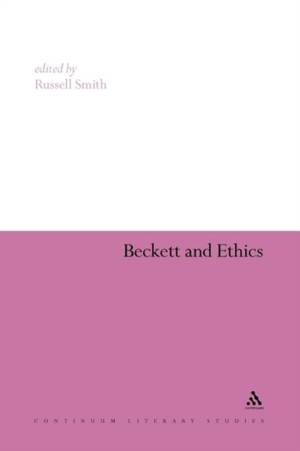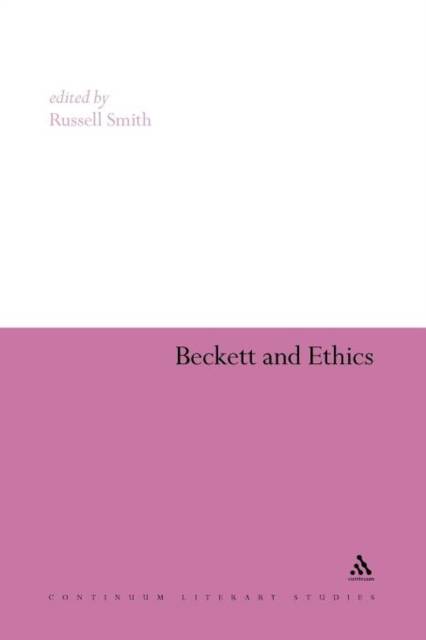
- Afhalen na 1 uur in een winkel met voorraad
- Gratis thuislevering in België vanaf € 30
- Ruim aanbod met 7 miljoen producten
- Afhalen na 1 uur in een winkel met voorraad
- Gratis thuislevering in België vanaf € 30
- Ruim aanbod met 7 miljoen producten
Omschrijving
At first glance, Samuel Beckett's writing-where scenes of violence and cruelty often provide the occasion for an unremittingly bleak comedy-would seem to offer the reader few examples of ethical conduct. However, following the recent "ethical turn" in critical theory, there has been growing interest in the ethicality of Beckett's work. Following Alain Badiou's highly influential claim for Beckett as essentially an ethical thinker, it is time to ask: What is the relation between Beckett's work and the ethical? Is Beckett's work profoundly ethical in its implications, as both humanist and deconstructionist readings have insisted in their different ways? Or does Beckett's work in some way call into question the entire notion of the ethical?
This provocative collection of essays seeks to map out this emerging debate in Beckett criticism. It will be a landmark contribution to an exciting new field, not only in Beckett Studies, but in literary studies and critical theory more broadly.
Specificaties
Betrokkenen
- Uitgeverij:
Inhoud
- Aantal bladzijden:
- 198
- Taal:
- Engels
- Reeks:
- Reeksnummer:
- nr. 181
Eigenschappen
- Productcode (EAN):
- 9781441151179
- Verschijningsdatum:
- 22/12/2011
- Uitvoering:
- Paperback
- Formaat:
- Trade paperback (VS)
- Afmetingen:
- 156 mm x 234 mm
- Gewicht:
- 285 g

Alleen bij Standaard Boekhandel
Beoordelingen
We publiceren alleen reviews die voldoen aan de voorwaarden voor reviews. Bekijk onze voorwaarden voor reviews.






